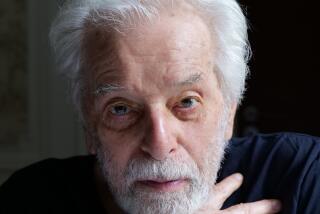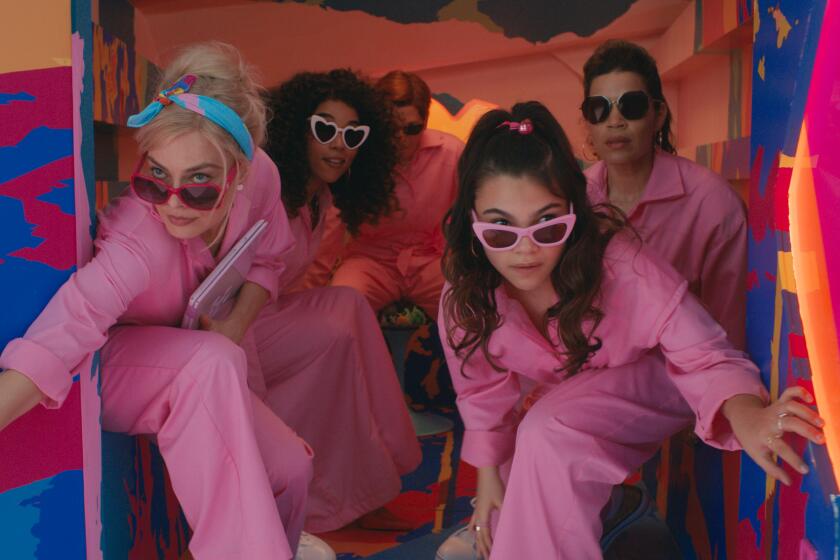How Jeremiah Zagar’s ‘We the Animals’ artfully illustrates the complexity of a young boy’s coming of age
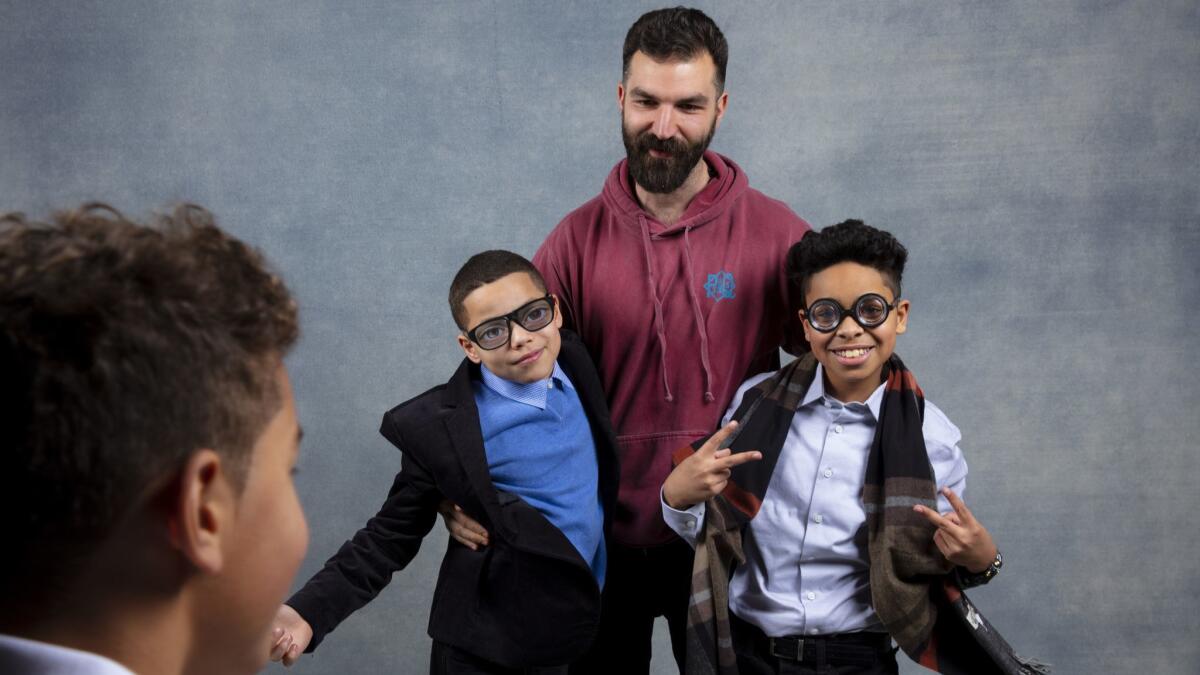
After picking up Justin Torres’ debut novel “We the Animals” in the recommended section of a Manhattan bookstore, director Jeremiah Zagar knew almost immediately that he wanted to adapt it for film.
“It’s got an amazing first page,” he said. “I was blown away. I went to the store’s café, and I just read the whole book. It’s like 100 pages, so it’s like reading an article.”
Over the course of a couple hours, he found himself moved by the story, which centers around the coming of age of a young boy growing up with three rough and tumble brothers in upstate New York.
Zagar bought the book, plus seven or eight copies for his producers and other members of the team he’d begun forming in his head. “That’s the short story,” he said.
The long story is, after working on the editing team of the Oscar-nominated documentary “The Square,” about the Egyptian revolution, “I had decided I was a revolutionary and was going to move to Egypt and be a revolutionary,” he said.
But life had other plans.
“I got back to the States, and I got married and things didn’t work out,” he said. Though he never returned to Egypt to finish editing the film, the spirit of revolution stuck.
“I think because I was in this excitement of these people who are so deeply passionate about something, I was questioning what I was deeply passionate about at that time in my life,” he said. “And so when I picked up the book, it was like, ‘Oh, this is my revolution ... I’m going to tell this story onscreen. That’s what I’m going to devote the rest of my life to now.’ ”
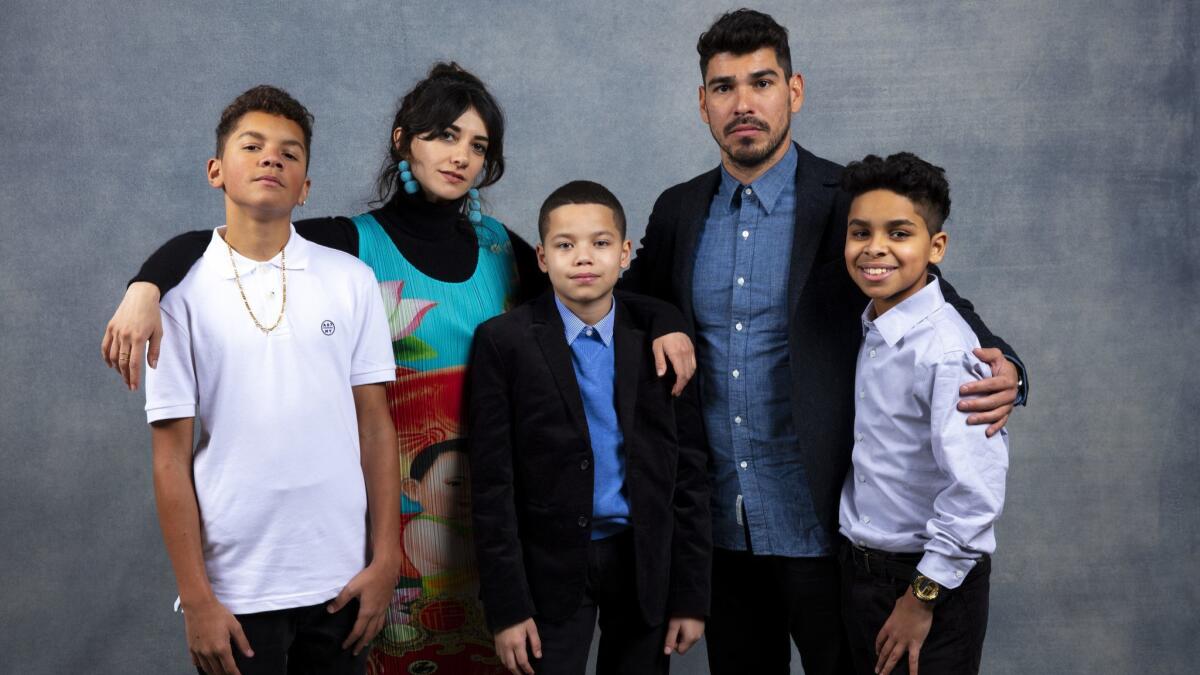
The devotion paid off faster than expected. “We the Animals” marks Zagar’s narrative filmmaking debut and tied for the Next Innovator prize at this year’s Sundance Film Festival — an award bestowed by a jury of one (this year, that judge was RuPaul Charles).
The film stars Sheila Vand and Raúl Castillo as Ma and Pops, a white mother and working-class Puerto Rican father raising three young sons in upstate New York. The boys are played by newcomers Isaiah Kristian, Josiah Santiago and Evan Rosado, whose character, Jonah, becomes the lens through which viewers experience the story.
“It was actually maybe the hardest editorial thing we did in the movie,” said Zagar of shooting from Jonah’s point of view. “He’s not named in the book, but in the movie, we needed to give that young boy a face and a voice. He doesn’t say much so it’s like, how do you make sure that his point of view is communicated when really what he’s doing is watching?”
Though the filmmaker briefly toyed with the idea of using trained actors, “we looked at actors [who] were kids, and we knew right away that they were wrong,” he said.
“They just come in with too much training. The characters needed to bend to the people that we were casting; we needed to find them.”
After auditioning a thousand kids and delaying production for a year, Zagar tapped Rosado to bring Jonah to life after discovering him at New York’s Puerto Rican Day parade.
“When you see that many [kids], you know when it’s really special,” he said. “He just was that kid. He walked in, and he was so shy and so beautiful and so natural.”
“I didn’t really want to be an actor,” the 11-year-old Rosado said. “I kind of got into it. I went to this parade and my mom kind of forced me to. And I ended up at this audition, and they made me scream at the top of my lungs.”
“He’d never yelled in his life,” said Zagar. “He’d never actually enunciated that loudly. And so you knew he was the right kid, but it was like, ‘Can he do this? Can he carry this really intense emotional role?’ He just rose to the occasion.”
When his family first saw the film at Sundance, “They were crying,” Rosado said. “They cried when they saw the film, and they cried at the end. They’re really proud of me.”
His friends, on the other hand, took a bit more convincing.
“Some of them found out about it at school,” he said. “Mostly, my mom tells them, and my brother. They didn’t believe me at first, but once they saw me on social media and stuff they were like, ‘Oh my god! You’re in this movie? That’s cool.’ ”
Rosado, who originally wanted to be a police officer, says he got bitten by the acting bug after working on this film.
“I think I’ll stick to acting,” he said, when asked of his current career aspirations. “Maybe I’ll do both.”
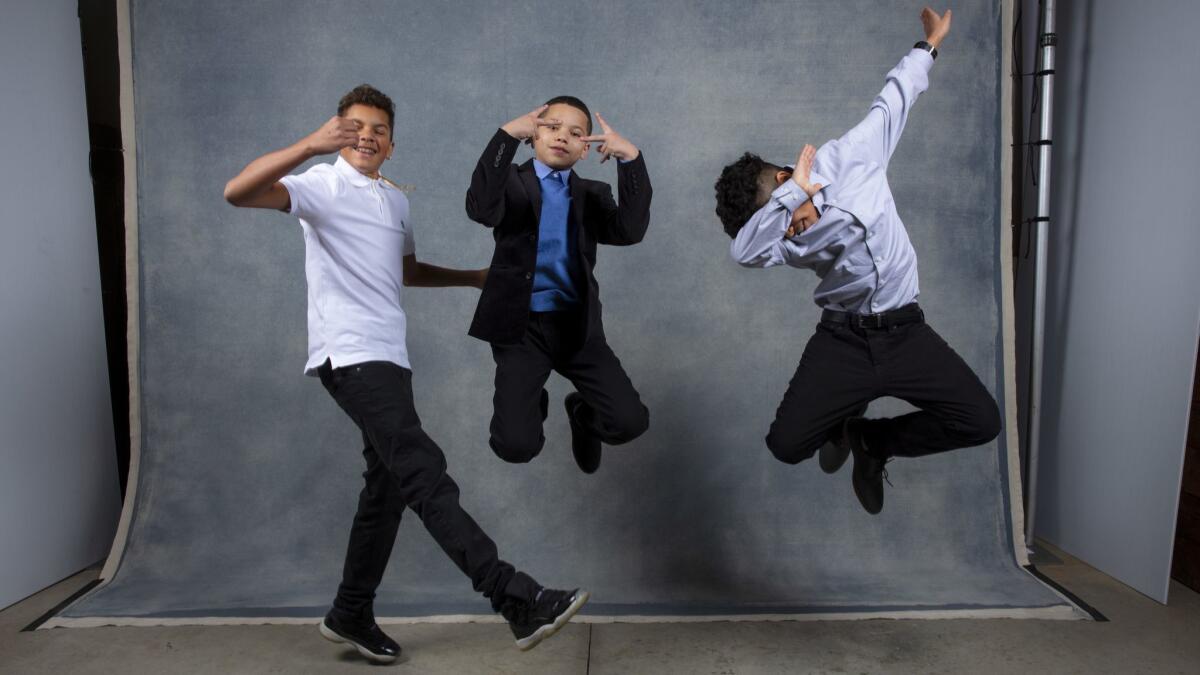
Zagar, who has a background in documentary filmmaking, wanted the family dynamic to appear as authentic as possible and encouraged the cast to live together as a family in the same house prior to shooting.
“The documentary background I think was my fallback because I didn’t know how to make a narrative necessarily, but I knew that if we could make it be as real as possible, it would feel as real as possible,” he said.
It was also important to him to offer an accurate representation of a complex, flawed family that felt true to life.
“I think that what I was drawn to about the book and what we tried to do in the movie is to say that love is not so simple as black and white,” he said. “Love and abuse and sexuality and youth and age are all very gray in terms of the way we understand them and think about them. When we purify love, it becomes something false. This is about the kind of love that families really experience, which is much more complicated, brutal, painful, joyous ... that’s what makes it love.
“I made the movie because that family reminded me of my family,” he continued. “I made the movie because I never see love like that onscreen. It’s never that nuanced.”
The film plays like an extended music video, with several seemingly formative experiences of Jonah’s intermingling with illustrations straight out of his journal, and dreamy shots of the countryside where the boys grow up. Zagar says that was inspired by the “poetic social realism” style of auteurs like Lynne Ramsay and Ken Loach.
“I wanted to do something that felt like, instead of poetic social realism, more like poetic commercial social realism,” said Zagar, co-owner of the Brooklyn-based production company Public Record, which has numerous commercials to its credit. “I love commercial techniques or music video techniques: that super fast, music-driven editing. Why not employ those for a poetic, expressive artistic thing instead of for selling candy or whatever?”
Cinematographer Zak Mulligan aided in conveying Jonah’s point of view through camera technique.
“We put the camera at [Jonah’s] perspective, follow the action from where he would see it and also keep the camera at eye-level, so we’re experiencing the world as much as possible as if we were ... seeing it through his eyes,” Mulligan said. “I think it creates an immediacy to the image and it puts us inside Jonah’s head and what he’s thinking.”
That meandering, abstract style is a visceral lead up to the final reveal when Jonah’s exploration of queerness is uncovered.
“I was so moved by the book, all I really wanted to do was get the book right,” Zagar said. “There’s subtle hints of his sexuality throughout the book, but they’re not clear until the very end. When I read the book, I loved that because it allowed anyone to enter the story from a universal perspective of youth, without sexuality, and then it allowed for you to understand the discovery of sexuality from another person’s point of view.”
Zagar, who is straight, tapped Torres and his co-screenwriter Dan Kitrosser for help accurately portraying the LGBTQ experience.
“I knew that I wasn’t going to get it right without them and without their input,” he said. “Justin was on set every day and was involved in every draft of the script.”
In addition to its Sundance prize, the film is already drawing comparisons to Oscar winner “Moonlight,” which Zagar doesn’t mind one bit.
“I think it’s an honor,” he said. “I think ‘Moonlight’ is a masterpiece. I think it’s as good as a movie can get.”
The Oscar-winning film had just come out while Zagar was in the middle of editing, “and I remember being like, ‘Whoa, I don’t need to do anything, I can just stop,’ ” he said with a laugh.
“I think that the film, stylistically, is very, very different,” he continued. “And storywise, it’s very, very different. But what I would hope that the comparison says is that this movie, though it’s small and personal, is vital in the way that ‘Moonlight’ is. And I hope that drives people to the movies.”
follow me on twitter @sonaiyak
More to Read
Only good movies
Get the Indie Focus newsletter, Mark Olsen's weekly guide to the world of cinema.
You may occasionally receive promotional content from the Los Angeles Times.


